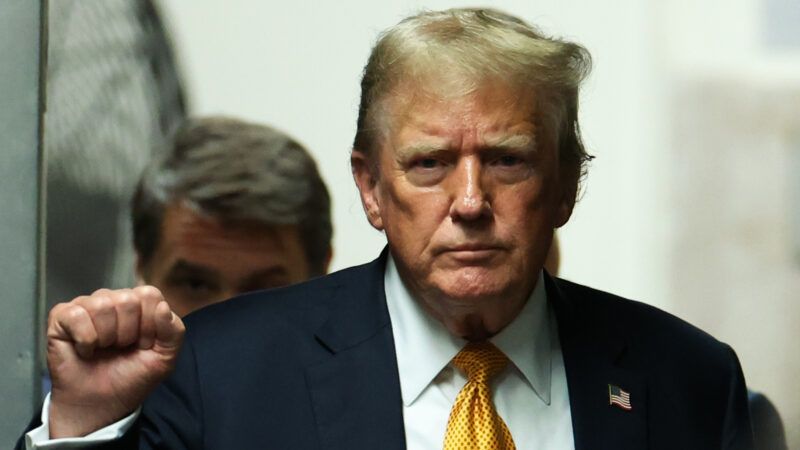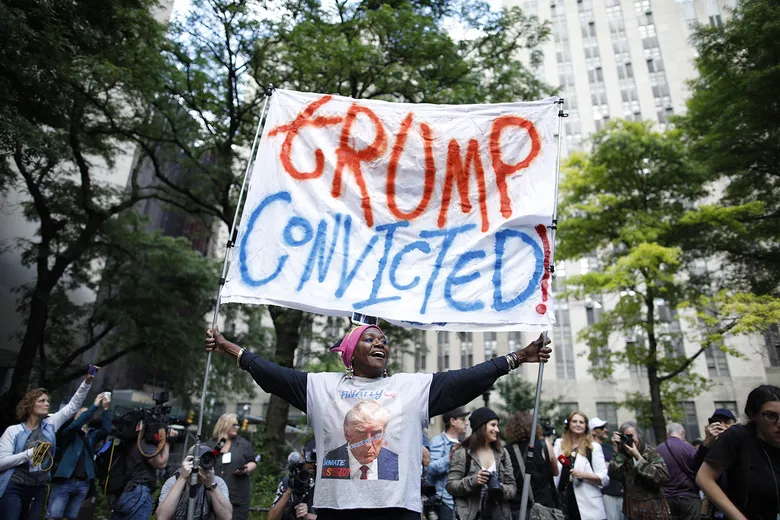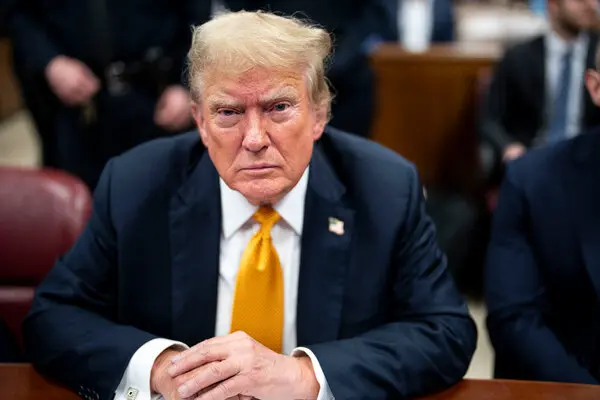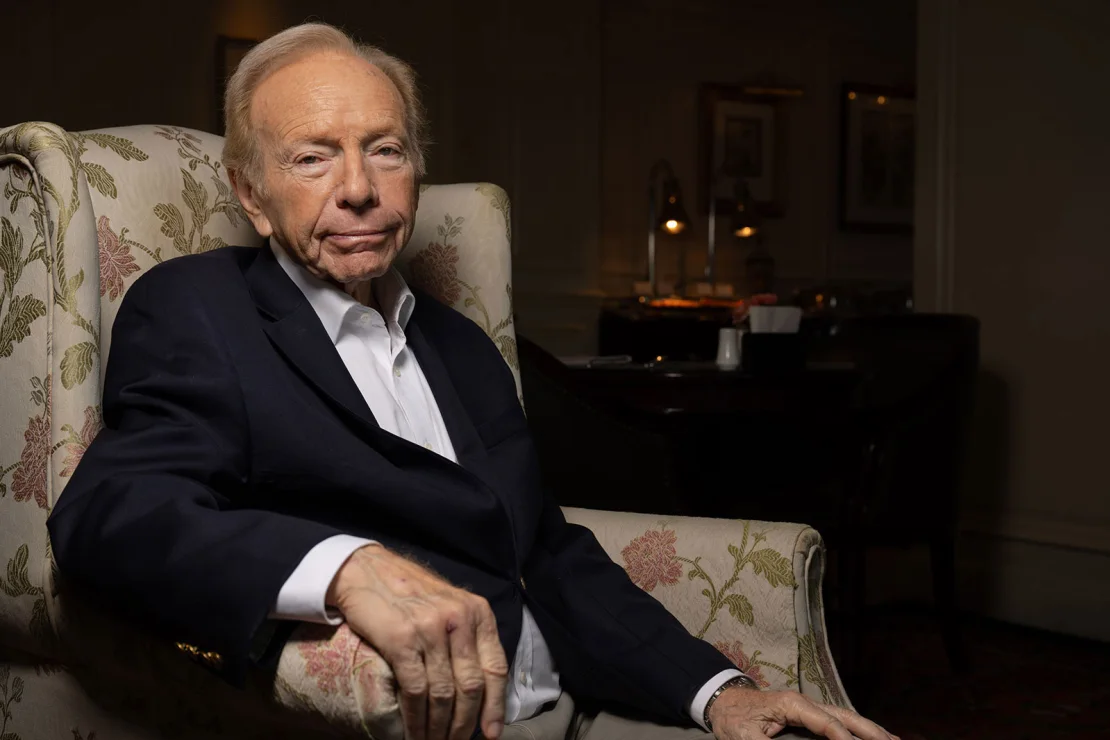In a landmark decision that reverberates through the corridors of U.S. history and law, Donald Trump, the former U.S. president, has been convicted on 34 felony counts of falsifying business records. This verdict not only marks the end of a protracted legal battle but also heralds the start of an unprecedented chapter in American jurisprudence.
A Historic Verdict and Its Immediate Aftermath
After a weeks-long trial in Manhattan, the jury’s verdict puts Trump in a precarious position, uniquely as the first former president convicted of a felony. This stems from a hush money payment scheme crafted during the climactic moments of the 2016 presidential campaign. With a sentencing date set for July 11, Trump faces a potential state prison term, though probation remains a possibility given the legal precedents and his status.
In typical fashion, Trump is expected to mount a vigorous appeal, a strategy he has often employed to defer legal outcomes. This appeal process is anticipated to delay the sentencing and prolong the legal drama surrounding the former president.

Understanding the Sentencing and Appeal Process
Presided over by Judge Juan Merchan, the sentencing could see Trump facing up to 4 years for each count, with a possible cumulative sentence of 20 years. However, he remains free without bond until sentencing, highlighting the unique nature of legal proceedings involving former presidents.
Trump’s legal team has already indicated their intent to appeal, challenging both the jury’s verdict and various judicial rulings throughout the trial. This appeal could significantly influence the timeline and ultimate outcome of Trump’s sentencing.
Presidential Aspirations Amid Legal Challenges
Despite this conviction, Trump’s eligibility to run for and potentially win the presidency remains intact. Constitutional experts like Professor Richard L. Hasen of UCLA affirm that the U.S. Constitution does not disqualify convicted felons from pursuing the highest office in the land. The only requirements are age, citizenship, and residency—criteria Trump undeniably meets.
Moreover, recent Supreme Court rulings preclude states from adding qualifications that would bar candidates like Trump from ballots, even in light of efforts to overturn a previous election. This underscores the robust constitutional protections afforded to presidential candidates, ensuring that their political fate is largely left to the electorate.
Voting Rights and Beyond: The Electoral Implications
As a resident of Florida, Trump’s voting rights are contingent upon state and federal laws concerning felons. While Florida’s stringent laws disenfranchise felons until all terms of their sentence are served, New York’s more lenient 2021 law allows felons to vote upon completing incarceration. This discrepancy between state laws exemplifies the complex interplay of legal standards that will determine Trump’s ability to vote in future elections.

Broader Legal Horizon and Implications
Trump’s conviction in Manhattan is just one facet of his legal troubles, which include multiple other cases ranging from federal election subversion to classified documents handling. These cases continue unabated, with each presenting its own set of challenges and implications for Trump’s political and personal life.
In sum, Trump’s conviction has set the stage for a series of legal, political, and electoral battles that will test the resilience of American legal principles and democratic norms. As these events unfold, they will undoubtedly shape the discourse around the rights and responsibilities of former presidents, the sanctity of the electoral process, and the legal contours of political accountability in the United States.
Stay tuned as we continue to analyze how this historic legal saga unfolds, shaping the future of American politics and law.


